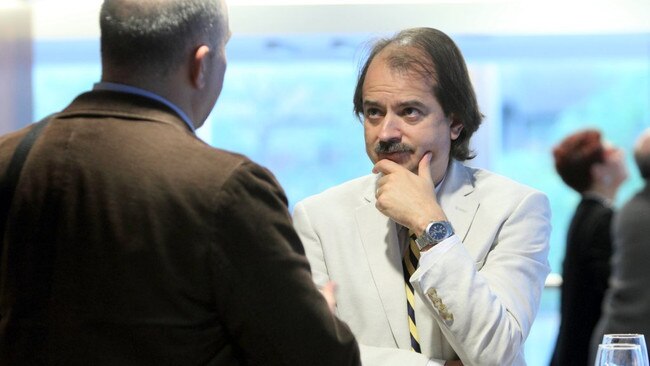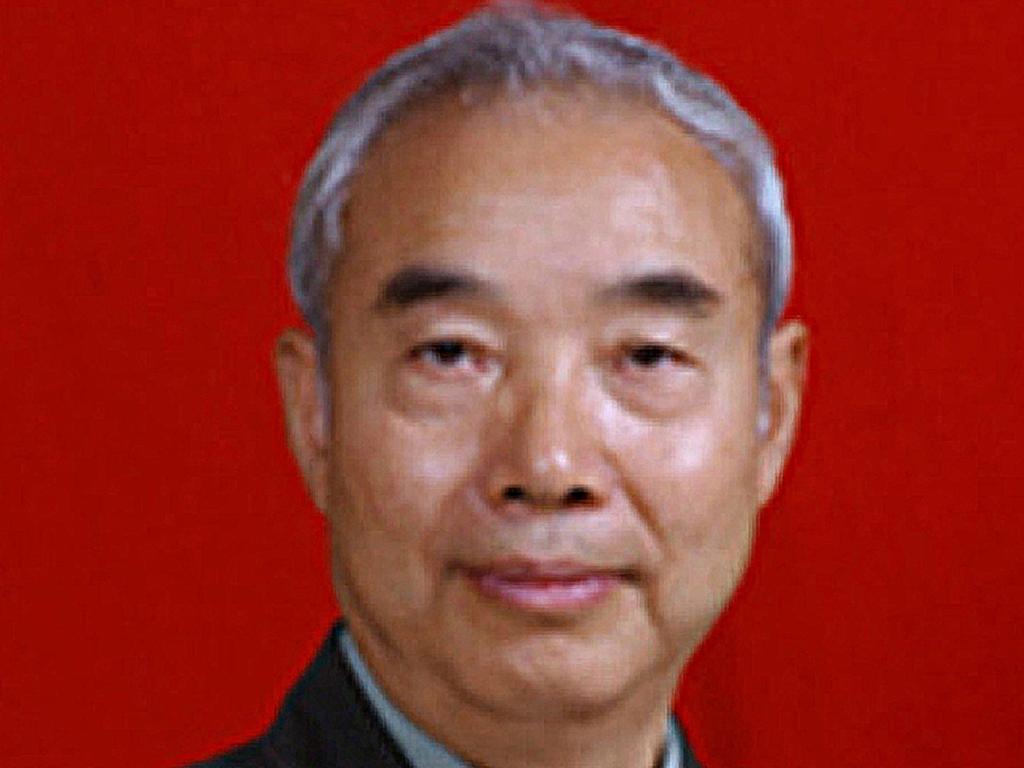When research locks down the politicisation of Covid
Behind the scenes, in the academy, the science of the pandemic is far from a settled thing.

That’s right, not a little biased but wrong.
“For most study designs and settings, it’s more likely for a research claim to be false than true,” Stanford University scientist John Ioannidis concluded in his famous 2005 essay, Why Most Published Research Findings are False, among the most read academic papers written.
For Ioannidis, one of the world’s top epidemiologists, it would be no surprise other scientists couldn’t replicate a study purporting to show fish were going mad as a result of higher concentrations of carbon dioxide in the Great Barrier Reef.
The “chase for statistical significance” has always encouraged researchers to try, at least subconsciously, to reject the “null hypothesis” of nothing to see here.
Torture the data enough and it will eventually confess, as economist Ronald Coase once said. When researchers want a particular result to please their funders or satisfy their own ideological priorities, the quality can be even worse.
The COVID-19 pandemic has been the ultimate case study, prompting a deluge of economic scientific research, much of it frantically trying to justify reputations and government policies during the past year.
It’s a tall order because no serious research published before 2020 advocated the array of draconian measures imposed over the past year, even in the case of a pandemic far more lethal than COVID-19. Few would realise given journalists’ and politicians’ repeated references to “the science”. But behind the scenes, in the academy, the science is far from settled.
Ioannidis, who early last year warned governments they risked precipitating a “once in a century evidence fiasco” by overreacting, says many academics in a quest to justify lockdowns have transformed into “wild beasts”.
“I see lots of people who I know and respect and admire as being very rational and calm, yet during the pandemic they have been transformed. There is no real exchange of evidence and data, no seasoned, calm, principled scientific debate,” he tells Inquirer.
“It’s been the equivalent of a war, where everything you can do to destroy your opponent is allowed. This is very unfortunate,” he adds.
Much of the debate revolves around research by Neil Ferguson and colleagues of Imperial College, whose original wildly pessimistic forecasts from months earlier convinced Britain and New York and other US states to follow China’s example of lockdowns.
Perhaps unsurprisingly given their incentives, the research concludes lockdowns saved 3.1 million lives in Europe alone.
“By comparing the deaths predicted under the model with no interventions to the deaths predicted in our intervention model, we calculated the total deaths averted in our study period,” their study concluded. Would that be the model that forecast more than 95,000 deaths from or with COVID in Sweden, if that country eschewed China-style lockdowns? Yes, a forecast that proved wrong by a factor of six.
Phillip Magness, a statistics expert at the American Institute for Economics Research, says it’s a “ludicrously unscientific” paper.
“They purported to validate their model by using its own hypothetical projections as a counterfactual of what would happen without lockdowns,” he says. In other words, the authors assumed lockdowns work to conclude that they work.
The academic debate around lockdowns has even produced duelling lists of scientists. Thousands have signed the Great Barrington Declaration, named after the small town in which it was signed in October last year, which opposes school closures, lockdowns and mandatory vaccination. Similarly, the John Snow Memorandum emerged soon after, attracting doctors and scientists in favour of mandatory rules for all.
“One has to be very cautious of vote counting in science, it’s not a valid scientific method. It’s why I haven’t signed any declarations,” Ioannidis says, arguing the Barrington list has “more top-cited scientists”.
“The John Snow list has far more people who are very active on Twitter, so they are much stronger on social media; so they generate the perception in the media that they are the overwhelming majority where in fact their position is probably a scientific minority,” he says controversially.
Economists have been just as polarised on whether lockdowns pass a cost-benefit analysis.
“The viciousness is a reflection of the politicisation of what is going on. As soon as people start talking about ‘the science’, that’s a sure sign they want to make a political point,” says Doug Allen, an economist at Canada’s Simon Fraser University, who recently reviewed 80 economic papers of COVID-19 policies.
Allen reckons Canada’s lockdowns will come to be seen as the “greatest peacetime policy failure in Canada’s history” once the full range of benefits and costs are assessed more dispassionately in the future.
“By August last year there was enough information available to show that any reasonable cost-benefit analysis would show that lockdown was creating more harm than good,” he says.
Speaking to Inquirer earlier this month, he wonders aloud “whether governments have been silencing journalists or just picking the ones who would ask the questions they want”.
“It’s extraordinary,” Allen says. “I watch these press conferences and the journos ask: ‘Why aren’t you locking down harder, longer, why aren’t you shutting everything down now?’
“Surely at least one of them wants to ask about the costs and whether these policies are legally and morally justified.”
As with dubious claims about the mental state of Great Barrier Reef fish, the public should be sceptical about claims the science is “settled” on any particular issue.
That’s especially true for COVID-19 policy, where arguably the most powerful actor in society, government, has a strong interest in promoting and rewarding research and academics who justify governments’ actions.
US president Dwight Eisenhower in his 1961 farewell address warned the world against becoming “captive of a scientific technological elite beholden to government patronage and support”.
“The power of money (in science) is ever present and is gravely to be regarded,” he said.
The ranks of academics have swollen hugely in the past 50 years. Inevitably, the average quality of what they produce declined. The bell curve of human intelligence doesn’t shift to the right simply because there’s more money sloshing around.
Indeed, the money itself can undermine the integrity of scientific output by creating conflicts of interest. Torn between truth and career success, the latter often — and understandably — will win out.
Science is a methodology for advancing knowledge, not a set of policy prescriptions. As novelist and former scientist Michael Crichton once said: “If it’s consensus it isn’t science, and if it’s science it isn’t consensus.”






Whatever comes of allegations of possible scientific fraud aimed at research linked to James Cook University’s ARC Centre of Excellence for Coral Reef Studies, reported in The Australian this month, it’s a reminder that the bulk of published research is false.